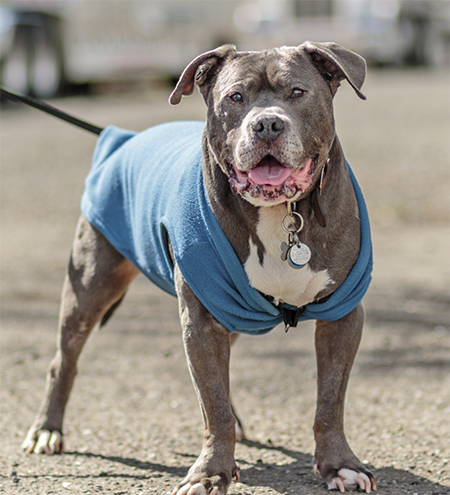Disaster Planning. Are you ready?
Disaster Prep: Lessons learned from pet owners who’ve been evacuated.
1. GO-PLAN. Where can you go in a hurry with your pets? Initiate a conversation now with friends/family who may be able to house you temporarily on short notice. We strongly encourage pet owners to work out agreements so everyone in the Host home is on the same page with management and confinement needs, especially when several pets are sharing the same space. Some suggestions for making it work.

Items for your bag:
– Extra leashes and collars. Extra pet ID tags
– Collapsable dog bowls + Zip lock bags with 3 days of kibble.
– Pet First Aid Kit + Meds and calming remedies (CBD oil, etc)
– Dog boots
– Thundershirt or other anxiety wrap for each pet
– Baby wipes, towel, a warm blanket
– Tie-out cable or Trolley Runner cable for securing your dog in open areas without fences.
– Copies of vet records and vaccine history (good to keep on your phone)
– Hard copy photos of your pets in case you’re separated
– Poop bags and pee pads for keeping your dog clean during confinement
– Dog chews
– Duct tape, tarp, sharpie marker, flashlight, extra batteries, whistle, can opener, matches
– Some cash, change of clothes + personal items for you
3. DURING YOUR EVACUATION. “IF you have any time, crate your cat(s), place them near exit, leash up dog so you can literally grab and run out the door. Stay “as calm” as possible, (NOT easy) your animals will read and take on your emotions. Realize your animals will likely be traumatized and may act differently after a disaster, including drastic personality changes.” – Advice from Megan Rawie, Camp Fire Survivor and owner of Moose (right)
4. INSURANCE. Displacement is incredibly stressful for everyone. If you’re able to afford a pet health insurance policy, you’ll be ready if your dog injures himself or becomes ill. It goes without saying that, to get into housing as quickly as possible, you’ll want to buy the best home insurance policy you can afford and commit to keeping it up to date. Renters, this is true for you, too. We recommend State Farm as a carrier who does not discriminate by breed type. Link to: Breed Neutral Insurance Carriers
“After a disaster, act quickly even if you haven’t received confirmation on the status of your home. Initiate insurance claim, report you are safe to family, friends and “marked safe site” if available.” – Advice from Megan Rawie, Camp Fire Survivor
5. ER FUNDS. Try to keep an emergency rainy day fund for securing a hotel room and/or necessities including gas, food, pet supplies, etc. until you’re able to access emergency living funds and/or disaster relief support.
6. IMPORTANT DOCS. Keep images of your pet’s most recent vaccine and health records including medication needs and proof of spay/neuter on your phone and online (Google docs, etc) for easy access.
7. PET ‘RESUME.‘ A document that spells out your dogs’ personality style, training history and any letters of recommendation you may have will help open doors if you need to rent an apartment or room for the short or long term.

9. CRATE. Keep your dog accustomed to being crated during normal life. It’s a skill that will help tremendously if you’re ever displaced.
10. AID. The larger disaster relief orgs – Red Cross, etc – can be of some immediate assistance, but the larger the disaster (Camp Fire, for example), the longer you may wait for help and the less you may receive. Reach out to animal orgs that specialize in the type of pets you have as well animal shelters or rescue groups who you may have a relationship with for pet-specific needs including pet food, supplies, fostering help or housing assistance. Be very specific about your needs when you make contact with the orgs.
11. THE INTERNET. After disasters, several Facebook pages usually pop up with ways to connect evacuees with helpers find resources. Check to see if your area has similar pages.
12. Once your situation is stabilized, reach out to other survivors with tips and ideas that will ease the stress of keeping their pets safe and comfortable.
Related:
Zip Code Search for Red Cross resources: LINK
From CFPB. Navigating post-disaster financial challenges. LINK
From SAMSHA. Coping Tips for your mental health. LINK
Mental Health Tips for Survivors & Helpers. LINK



